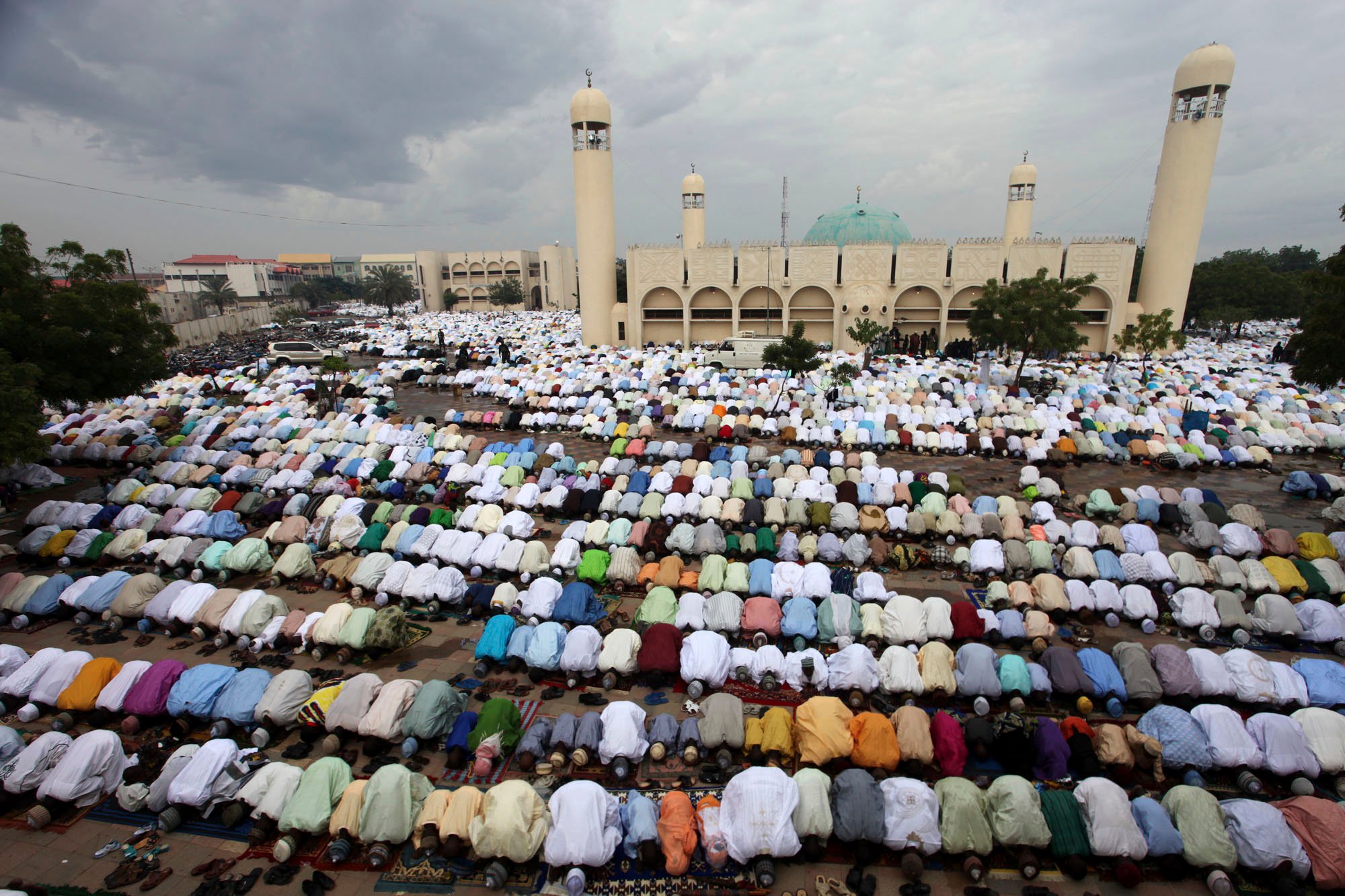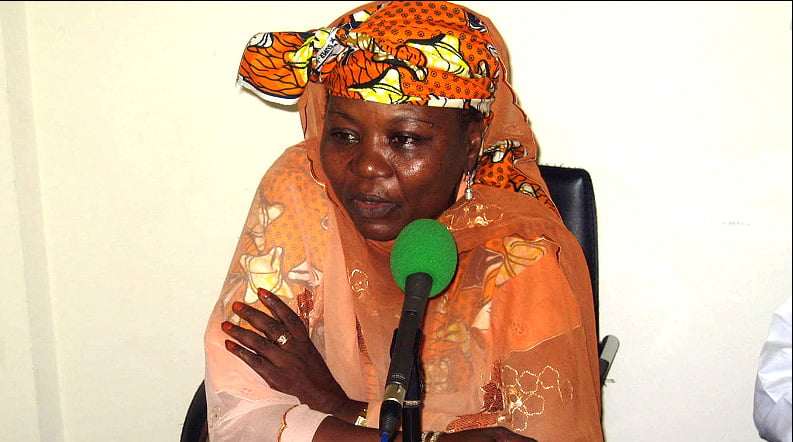“Surely Ibrahim was an example, obedient to Allah, by nature upright, and he was not of the polytheists. He was grateful for Our bounties. We chose him and guided him unto a right path. We gave him good in this world, and in the next he will most surely be among the righteous.”
Some of my fondest memories as a child were that of the Eid Al-Adha Sallah celebration. During those earlier years of my life, it was custom for the children in my family to wake up early in the morning, get dressed in our very best attire and anticipate the family activities that were to take place on that day. After my siblings and myself finish our third rate beauty contest, we would go outside and wait for the males in the family to come back from attending the morning Eid prayer.
When the men folk got back, we would wait till the Sallah ram had been slaughtered before proceeding to the slaughter area to watch the distribution of the meat to our neighbours, friends, family and the poor. As soon as the distribution is done, all the children in the house would go for visits to friends and family and exchange greetings and gifts. After the euphoria of the day, my family would settle down to play indoor games in the evening. At the end of each Sallah period, I was always very sad as a young girl because I never wanted the day that I appreciated for all its charity, fun, and harmony to end.
Now, as a grown up, I appreciate the day for something much more profound. I appreciate it as a time to show respect for sacrifice and to reflect on our obligations to the people we know. It is also a time to demonstrate charity, commitment, cooperation, compassion and a sense of unity and oneness. It is a time to celebrate the principles, meaning and essence of Islam. Eid Al-Adha contains many wonderful messages including the fact that it is an external expression of the testimony of faith.
Advertisement
Every year, at the end of the Hajj pilgrimage to Mecca, Muslims throughout the world celebrate and commemorate this glorious and holy day that derives its message from the remarkable trials, triumphs and the unwavering faith of Prophet Ibrahim. And it is in the extraordinary story of Prophet Ibrahim and his love for the Almighty that many faiths throughout the world, learn about obedience and submission to the Almighty.
For every Muslim, at this time of year we are obliged to remember the acts of obedience and submission performed by Prophet Ibrahim and his family when he was commanded to take Hajara and their son Ismail to a desolate, remote land as a sacrifice and symbol of his love for his Creator. In what seemed an almost impossible feat, Prophet Ibraham submitted and obeyed the command from God.
At the realisation of the ordeal to befall them, Hajara queried Prophet Ibrahim as to whether he intended to leave them as sacrifice in the valley, to which Prophet Ibrahim didn’t answer. Contemplating his silence, she went ahead to ask if the Prophet was ordered by Allah to sacrifice her and her son, to which he replied in the affirmative. In response to this final answer, Hajara submitted to Allah’s will because she knew that God would never let her and Ismail perish.
Advertisement
In addition, when Ismail grew up, the Prophet was again commanded by the Almighty to sacrifice him. Upon hearing this command, he prepared to submit to God’s will. When he was all prepared to do it, Allah revealed to him that his sacrifice had already been fulfilled. He had shown that his love for his Lord superseded all others to the extent that he was prepared to lay down his own life or the lives of those dear to him in order to submit to God. There is no doubt that throughout history, the family of Prophet Ibrahim was a family that demonstrated the profundity of obedience and submission like no other. Time and again their faith and will has been tested and each time, they exhibited resilience in patience, submission and obedience.
Just as Prophet Ibrahim was tested throughout his life to see if he would submit or not, so will we be tested to see whether we submit to the Almighty’s rules and regulations. Just as the people of other faiths practice at various times of the religious calendar, there is no better time than now for Muslims to realise that every strain, drudgery and adversity we suffer compliments our pursuit to be obedient. If we all obey the tenants of our religion, we may be in the company of Prophet Ibrahim and his family in Paradise.
We should always take action toward improving our obedience and submission to God in the short space of time we have in this world. We must always recall that a great number of people who celebrated Eid with us in the years gone by have now become the residents of the graveyard. We are sure to join them at a time unknown to us and best known to God.
Eid is about having an attitude and willingness to make sacrifices in our lives in order to adhere to compassion and righteousness. And that can only be a good thing because we each should make the small sacrifices that entail us to give up things that are fun or important to us. A Muslim who truly submits themselves completely will always be willing to follow the Lord’s commands completely and obediently. It is this strength of heart, purity in faith, and willing obedience that our Lord desires from us.
Advertisement
When we share meat during Eid al-Adha, we share it mostly with immediate family, relatives, friends and the poor. The act symbolizes our willingness to give up things that are of benefit to us or close to our hearts, in order to follow Allah’s commands. It also symbolizes our willingness to give up some of our own bounties, in order to strengthen ties of friendship and help those who are in need. We recognize that all blessings come from the Almighty, and we should open our hearts and share with others.
No matter whether we are Jews, Christians or Muslims, we should channel the message of peace, sacrifice and forgiveness that Prophet Ibrahim, the grandfather of all three religions, passed down to us. Part of the messages of Eid is that we are from the same roots and just as we gathered to share in the blessings of the Eid, no matter which faith we practice, we must try very hard to reinforce our humanity, unity and mend our differences upon truth, fairness and justice.
Now that the Eid has come, the meat will be eaten, the “Eid Mubaraks and the Barka Da Sallah’s” will be exhausted, our obedience and submission must be constant and continuous during this period and beyond. Let’s endeavour to do good deeds because we must remember that no one has an agreement with the Angel of Death to delay their death until the time they choose to submit and obey to their Lord. We know of the example of this submission from Prophet Ibrahim, Hajara and their son Ismail.
As another Eid Al-Adha comes and passes, I remember, with nostalgia, those my beautiful early years during the celebrations of the festival. And although I may not be as ecstatic about the slaughtering of ram as I was when I was a young girl, I still love and appreciate this time of year as much as I ever did.
Advertisement
I hope Eid touches families throughout Nigeria and the world, the way it has touched mine.
During this beautiful and wonderful time, I would like to send my best wishes to all who observed the festival and celebration of Eid al-Adha and thank those who rejoice and celebrate with us.
Advertisement
I invite you to:
Follow me on Twitter – @hanneymusawa
Visit my Website – www.hanneymusawa.com
Like my Facebook- www.facebook.com/hannatu.musawa
Text (SMS Only): 08116759753
Subscribe to my Youtube Channel- www.youtube.com/HannatuMusawa
Advertisement
Add a comment






